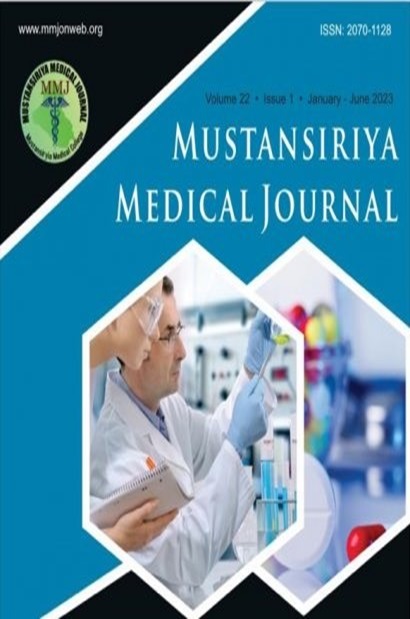Abstract
Background; Insulin resistance and increased serum free testosterone
are well known to be associated with preeclampsia
Type of study; case control
Aim of the study; to compare serum levels of free testosterone among
hypertensive preeclamptic women versus control
Methods; two groups were constructed from primigravida women
taken from labor ward. Study group (N=30) were preeclamptic versus
control (n=30). For all women serum testosterone was assayed and
compared and correlated to mean arterial blood pressure and other
variables in preeclampsia
Result; serum free testosterone was significantly higher among women
with preeclampsia compared with control 5.00±0.72 versus 1.28±0.97, P
< 0.001. No Significant change was found between serum estriol levels
in both groups. Analysis of co-variants has shown that fetal gender
(Male) has no effect on maternal serum testosterone levels.
Conclusions; preeclamptic women in the third trimester have
significantly higher free testosterone serum levels than control women.
It is not clear yet whether this increase in free testosterone is related to
insulin resistance in the placenta or other factors. Further studies are required to explore the significance of increased testosterone levels in the blood with prediction of preeclampsia and assessment of its severity.
are well known to be associated with preeclampsia
Type of study; case control
Aim of the study; to compare serum levels of free testosterone among
hypertensive preeclamptic women versus control
Methods; two groups were constructed from primigravida women
taken from labor ward. Study group (N=30) were preeclamptic versus
control (n=30). For all women serum testosterone was assayed and
compared and correlated to mean arterial blood pressure and other
variables in preeclampsia
Result; serum free testosterone was significantly higher among women
with preeclampsia compared with control 5.00±0.72 versus 1.28±0.97, P
< 0.001. No Significant change was found between serum estriol levels
in both groups. Analysis of co-variants has shown that fetal gender
(Male) has no effect on maternal serum testosterone levels.
Conclusions; preeclamptic women in the third trimester have
significantly higher free testosterone serum levels than control women.
It is not clear yet whether this increase in free testosterone is related to
insulin resistance in the placenta or other factors. Further studies are required to explore the significance of increased testosterone levels in the blood with prediction of preeclampsia and assessment of its severity.
Keywords
free testosterone
preeclampsia
insulin resi
Keywords
-
